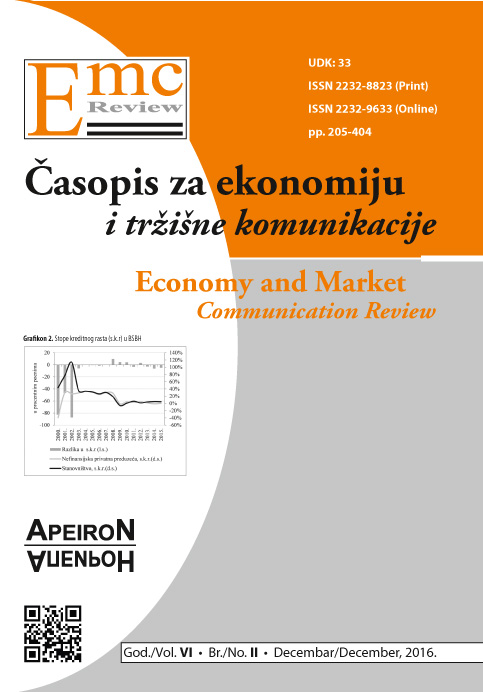QUALITY MANAGEMENT, AN ISSUE VITAL FOR EFFECTIVE MANAGEMENT
DOI:
https://doi.org/10.7251/EMC1602335TAbstract
Quality management is the management philosophy that emphasizes the need to improve the products and service in order to better exploit the resources of the organization, which requires continuous improvement in the quality of performance of all processes, products and services of an organization. The main bastion of quality-management is focusing on customers and is recognized as a fundamental component of development strategies for market competition. However, quality management in organizations is facing with dilemmas where managers prefer to organize day-to-day activities in a predictable and routine manner in which the change of stability is the natural order of things in the global living space of current operations. The organizations hardly open space for installation change by reducing their ability to change and innovation to increase efficiency in its operations. The authors of this study emphasize the question of why most of the changes in quality management are slow and simultaneously performed gradually while the organizations in the global economy require rapid and radical changes in the direction of using new techniques and technologies, introducing new products and services, making applicable strategy and structure, its own identity and culture. This is how these four types of changes basically realize competitive advantage where managers can ensure that each of the necessary ingredients for change in quality management is affordable and effective.Using technical innovation, as a tissue of the organizational structure that encourages autonomy of employees in the flow of ideas from the bottom upwards is of most interest to organizations. The change in strategy and structure in quality management and top-down approach, which is particularly applicable, are the scope of the administration that takes responsibility for the restructuring changes in the directions of operations, objectives and control systems. Culture, cultural identity and changes basically belong generally to the top managers in reengineering, change of horizontal forms of organization and organizational diversity and organization that teaches and guides the development of human and social aspects and use knowledge from behavioral science to bring real changes in attitudes and communications with consumers. Implementation of systems, methodology and metrology systems as quality builds confidentiality to anything that can be measured, because new technologies have made quality of the products and services are measured to the lowest values, therefore, today’s organizations require strong leadership to guide these processes.
